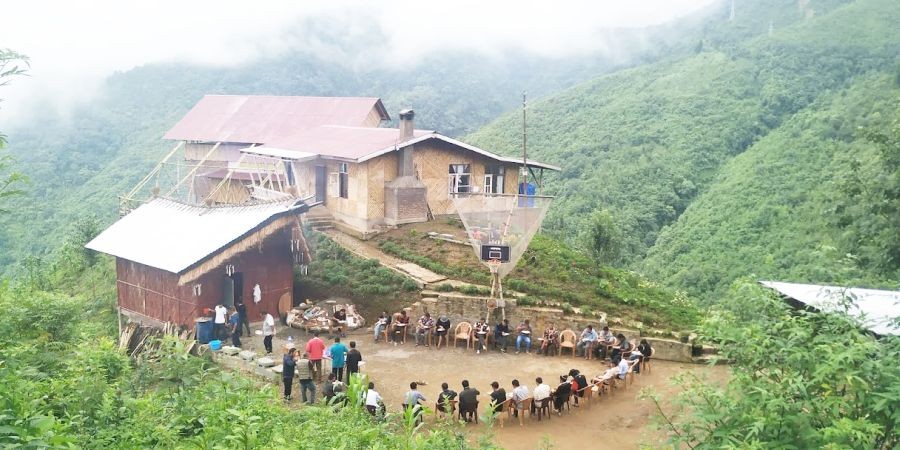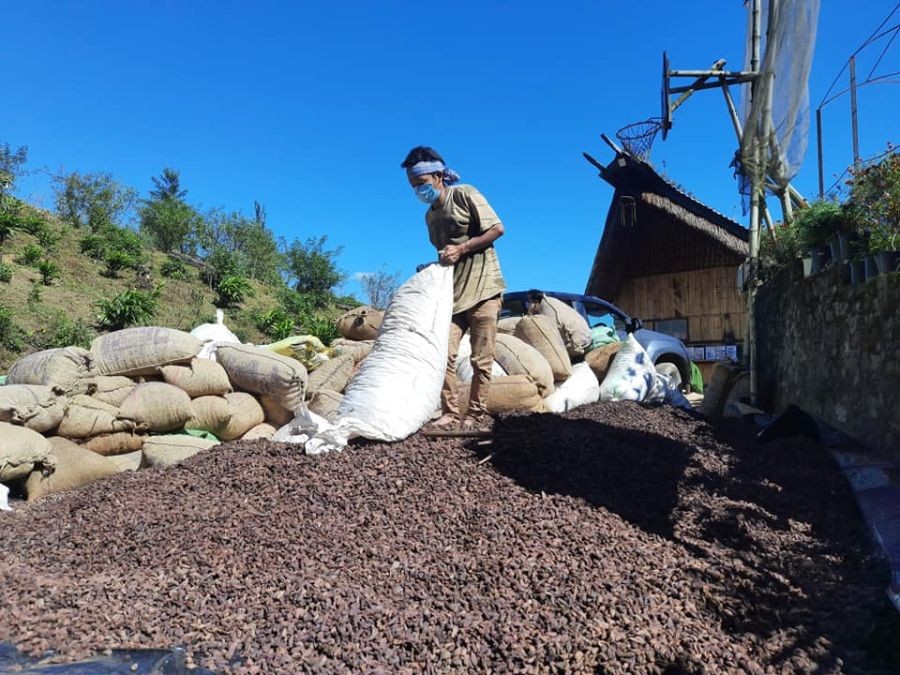Farmers' Innovation Centre. (Photo Courtesy: Better Life Foundation)


P Achumse Yingbithongrü
Kiphire | January 3
Among most of the eastern Nagaland communities, farming was mostly subsistence. Harvest from the field was seldom considered commercial.
However, through the effort and dedication of one man to provide sustainable livelihood to farmers in rural area, today farmers have not only tasted the benefit of farming fruits but are also experiencing increase in income; thus, giving them the purchasing power and opportunity to send their children to good schools and colleges.
In an exclusive interview with The Morung Express, Sethrichem Sangtam, founder of Better Life Foundation (BLF) and winner of first Rohini Nayyar Award for exceptional contribution to rural development by an individual under the age of 40 shares about his journey, challenges and inspiration.
How it all began
Sethrichem Sangtam relocated to America from National Law School, Bangalore as he was selected for Global Youth Advisory Panel to the UN Population Fund. “After spending time in the US, in 2009, I decided to come home for three years to start an organisation to focus on rural livelihood security, bio-diversity conservation and promote innovative social enterprise,” he said.
The primary reason for coming home, he said was also to focus on quality education since eastern Nagaland, though representing around 48% of the entire Nagaland population, have yet to produce single IAS officer from the region.
When BLF was founded, for the first 6 months, he decided not to use even two-wheeler and instead travel by foot within the community, to understand better the problems faced by people at the grassroots. During these travels, he came to realise that quality education was a far-fetched dream because the priority was something else.
“Apart from longing for quality education, people were hungry as they wanted to feed their stomach,” he observed, which made him to focus on providing sustainable livelihood security to farmers through the foundation.
Farmer transformation
Today, Sethrichem is working with 1200 marginal farmers, who are undergoing transformation from jhum cultivation/shifting cultivation to settled cultivation where farmers taking to fruit orchards substantially increasing their income.
After the intervention, he said that the farmers are earning at an average of Rs 1.3 lakh an acre from growing fruits as opposed to Rs 34,000 from 3-4 acre some 7 years ago.
Community support
Recalling why he took the initiative to work at the grassroots, he said, “I grew up in a remote village and have seen the myriad challenges faced by the people and they needed some guidance, so I decided to invest my time, resources and be with them to co-create sustainable solution to the problem.”
“Community participation is very strong or else I would have returned to America 10 years ago,” he added, while thanking his family for their unwavering support without which he said he would not have reached this far.
Significance of recognition
Speaking about his achievements, he said he never had any expectation for awards and recognition. “If the local community with whom I work recognise my effort, that was everything for me, but today having recognition of my contribution at the national level has definitely motivated me,” he added.
Challenges
Listing out certain challenges, Sethrichem stated that resource constraint, short of skilled workforce, unwillingness of educated people to stay and work in the village, pathetic road condition, irregular power supply and poor internet connection were some of the challenges hampering productivity.
“Sometimes the mindset of the people become a major bottleneck as they don’t want to move out of their comfort zone,” he stated.
Support and assistance
Sethrichem said that BLF has been supported by NABARD for the last 12 years. It also initially received support from the DUDA for the innovative Goat Farm Project and later the present Chief Minister-supported Horticulture Pilot Project.
Terming this collaboration as a “happy marriage,” he said transparency and accountability is key to successful implementation of any project.
Along the way, the BLF also received technical assistance from the ICAR and KVK.
Training and work undertaken by BLF
The BLF is working with 1200 marginal families for adopting permanent farming by growing fruit trees in atleast an acre and farmers are also taught how to raise their own nursery and grafting, at the same time, promoting 3 FPOs so that collective marketing of their own product is taken care of within the community itself.
It has also started a cultural preservation programme, teaching young boys and girls to be professional folk dancers and promoting home-stay and farm-stay for experiencing rural culture.






